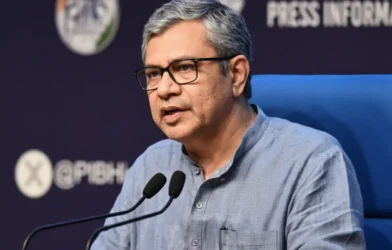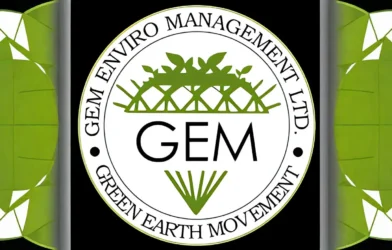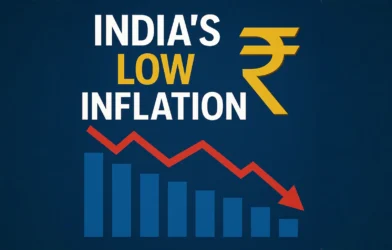Author: Aditya Pareek | EQMint | Startup News
India’s startup ecosystem has undergone a dramatic transformation over the past decade, evolving from a funding-driven, hustle-focused culture in 2015 to a more mature, sustainability-oriented environment in 2025. The ambition remains unchanged, but the approach to building and scaling companies has shifted significantly.
According to ecosystem analysts, the period between 2015 and 2025 represents one of the most defining phases for Indian entrepreneurship — moving from rapid expansion at any cost to strategic, long-term growth models.
2015: Funding, Speed and Hyper-Growth Defined the System
The year 2015 marked the first major boom in India’s digital economy. Venture funding surged, global investors poured capital into consumer internet companies, and unicorn valuations became a benchmark for success.
Startups expanded aggressively across cities, categories and sectors, backed by deep-pocketed investors betting on India’s consumption story. Companies such as Flipkart, OYO, Ola and Paytm led a wave of blitzscaling marked by:
- High cash burn
- Deep discounting
- Fast hiring cycles
- Market expansion without profitability
- Heavy dependence on external capital
Hustle culture dominated the ecosystem, with founders prioritising speed over sustainability and GMV over margins.
2025: Shift Toward Clarity, Profitability and Operational Discipline
Ten years later, the ecosystem presents a starkly different picture. Startups in 2025 are operating with sharper financial discipline, tighter cost structures and clearer business models. Funding is no longer the first milestone — profitability and unit economics now lead investor priorities.
Industry experts note several factors behind this shift:
- The funding winter of 2022–24 forced companies to restructure.
- Investors began prioritising sustainable revenue over hyper-growth.
- Founders moved away from aggressive scaling strategies.
- Corporate governance and compliance standards strengthened.
- Customers became more value-driven and less discount-dependent.
This has resulted in a calmer, more measured approach to company-building — one where founders emphasise clarity, long-term planning and controlled, organic growth.
New-Age Leaders Reflect the Maturity of the Ecosystem
While the early wave of startups chased scale, the modern generation is more focused on building resilient, profitable businesses.
Companies such as Zerodha, Zoho, Zepto and newer enterprise-tech startups have become symbols of India’s matured startup landscape, showcasing:
- Profit-first operating models
- Leaner teams and efficient cost structures
- Transparent governance
- Sustainable customer acquisition
- Long-term focus on technology and product
Analysts point out that the Indian market has fundamentally evolved. Discount-led competition has reduced, and founders are now being rewarded for stability rather than speed.
The Ecosystem Has Grown — But Also Grown Up
While India has added hundreds of new startups, several unicorns and multiple listed tech companies between 2015 and 2025, the more meaningful change lies in the ecosystem’s mindset.
Key Trend Shifts (2015 vs 2025)
- Growth at any cost → Growth with discipline
- Funding-first approach → Revenue-first approach
- Rapid expansion → Strategic expansion
- Hustle culture → Healthy productivity
- GMV focus → Profitability focus
Market observers say this shift marks the ecosystem’s transition from adolescence to adulthood, shaped by a decade of rapid learning, policy changes and global market corrections.
Experts See 2025 as the Start of India’s ‘Second Startup Decade’
Economists and investors believe the next decade will be defined by more mature, deep-tech-led entrepreneurship, driven by sectors such as:
- Artificial intelligence
- EV and battery technology
- SaaS and enterprise tools
- Robotics
- Space tech
- Climate and sustainability solutions
Unlike the consumer-tech boom of 2015, the upcoming wave is expected to prioritise research, innovation and long-term economic value.
Conclusion
A decade apart, India’s startup ambition remains the same — to build globally competitive companies — but the mindset underpinning that ambition has fundamentally changed.
What began as a fast-moving, funding-fuelled sprint in 2015 has, by 2025, evolved into a more stable, disciplined and mature ecosystem. With stronger governance, clearer business models and a growing focus on sustainability, India’s startup landscape is now positioned for deeper innovation and long-term global impact.
For more such news and information visit EQMint.
Disclaimer: This article is based on information available from public sources. It has not been reported by EQMint journalists. EQMint has compiled and presented the content for informational purposes only and does not guarantee its accuracy or completeness. Readers are advised to verify details independently before relying on them.









